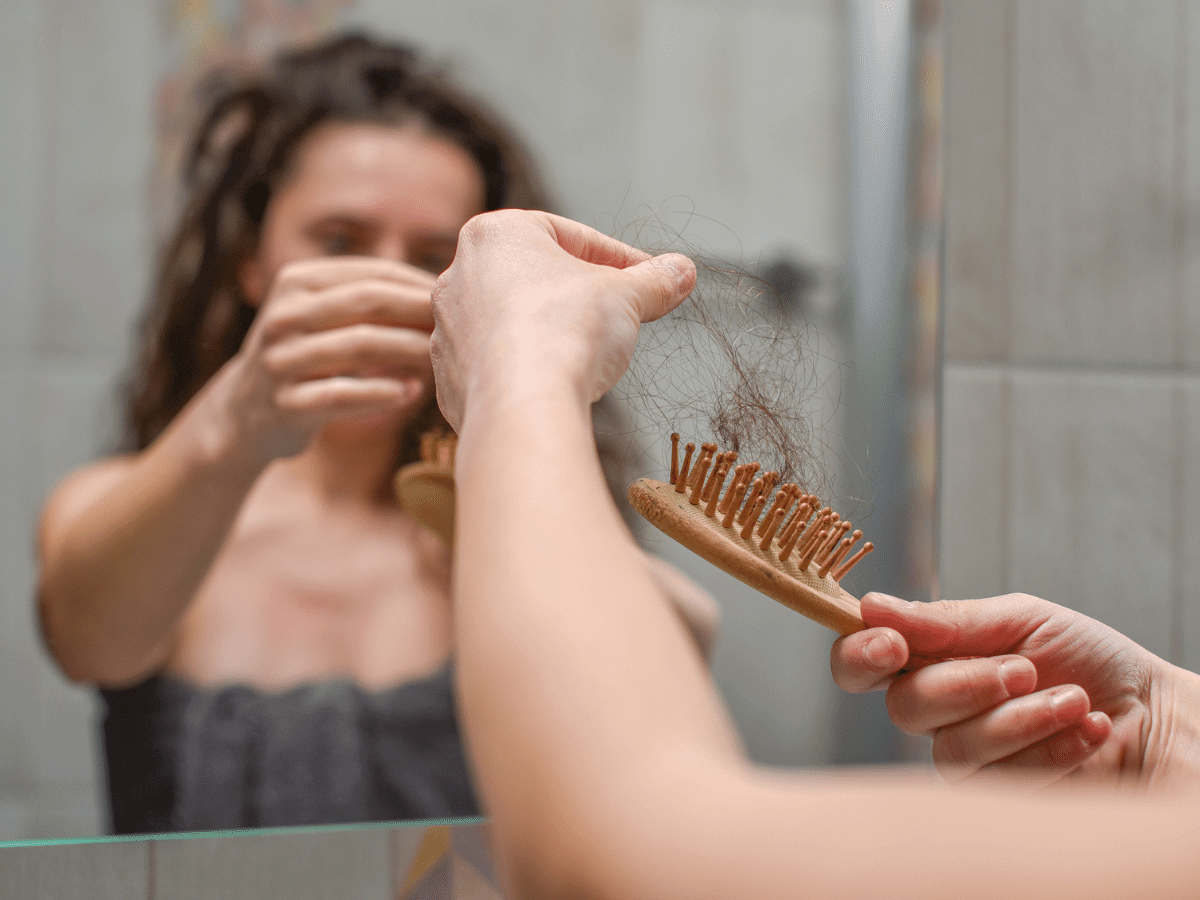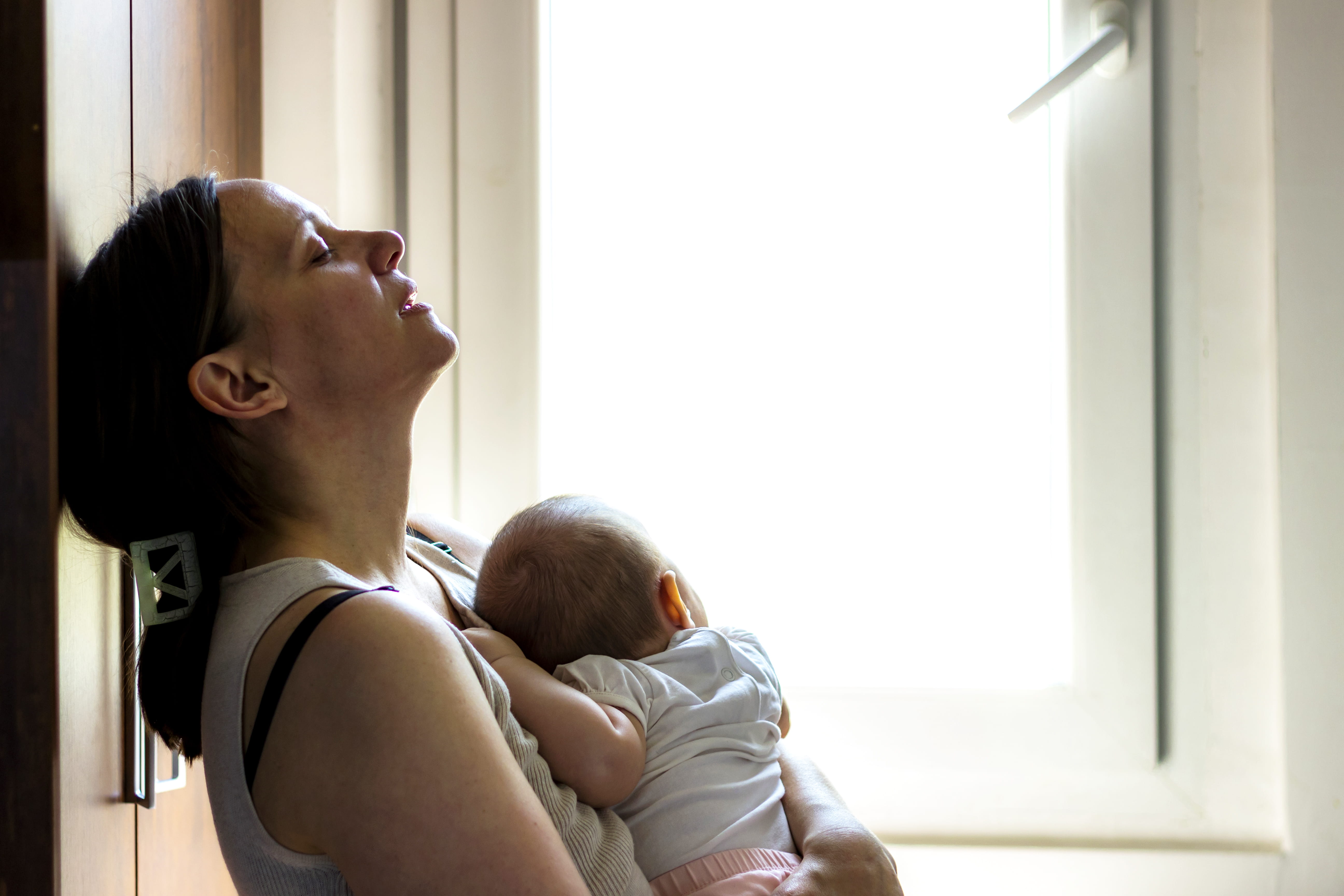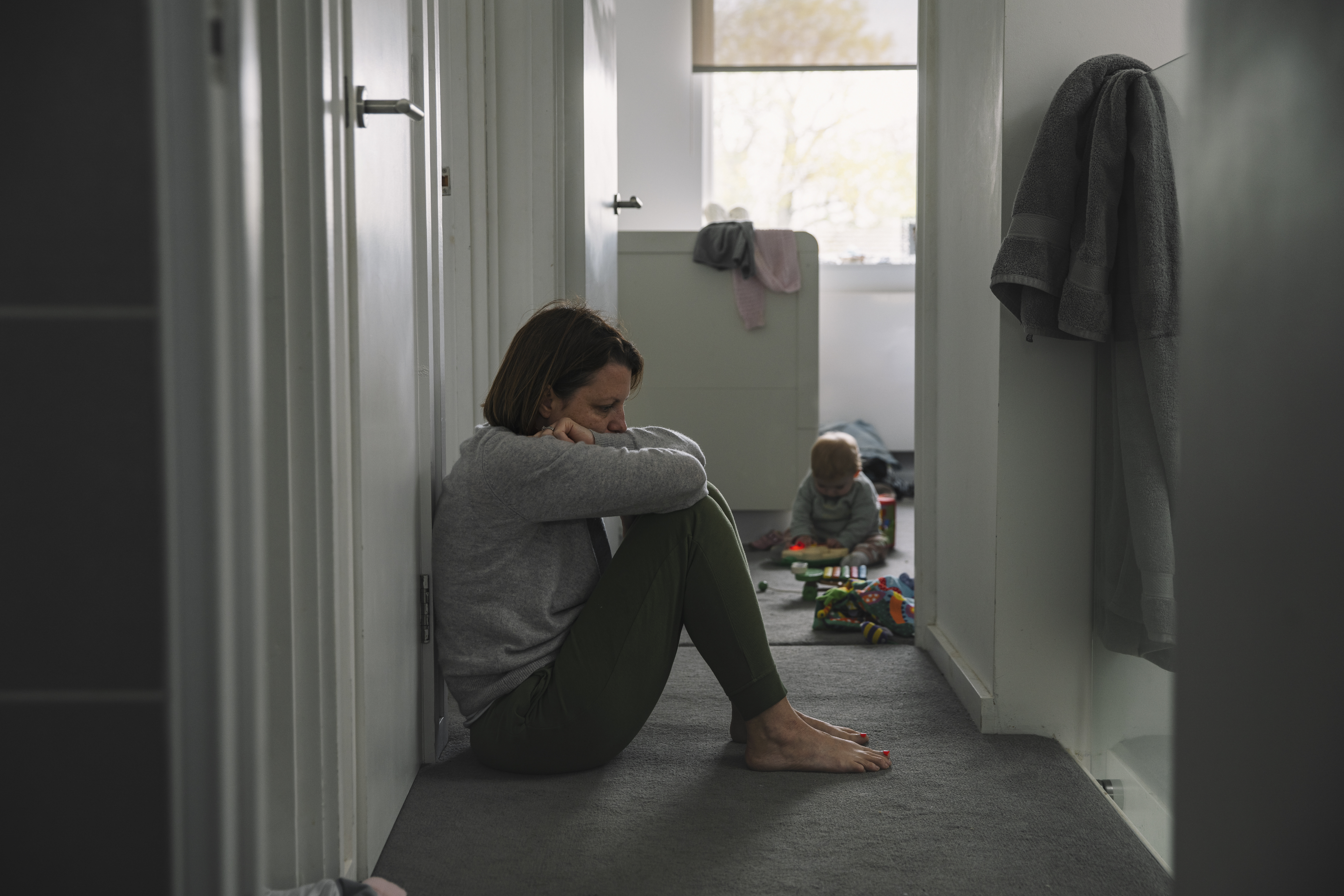Understanding Postpartum Hair Loss

As a new mom, you may experience hair loss starting within a few months after your baby is born. That can be distressing on top of all the other challenges you’re dealing with. The good news is that this isn’t hair loss in the traditional sense — it’s a normal, temporary condition that resolves on its own in time.
This article explains the cause of postpartum hair loss and how you can manage it.
What Causes Postpartum Hair Loss?
People normally lose approximately 100 hairs each day. They fall out throughout the day and you may not even notice it. When you’re pregnant, your hormones prevent that hair loss, so many women have the thickest, shiniest hair they’ve ever enjoyed.
Unfortunately, after your baby is born, your hormone levels change significantly. Your estrogen level, in particular, drops. That decrease causes postpartum hair loss. Typically, women start seeing accelerated hair loss at around three months after giving birth.
How Long Does Postpartum Hair Loss Last?
Hormone changes during and after pregnancy vary from person to person, but postpartum hair loss resolves in three to six months in most women. In some instances, the condition can last for a year.
Never Miss a Beat
Get the latest health and medical news and tips delivered straight to your inbox. Sign up for our free email newsletter to stay in-the-know on the information that matters most.
Can Postpartum Hair Loss Be Prevented?
There’s no preventative measure or “cure” for postpartum hair loss. However, there are steps you can take to minimize and/or mask it. The most important action you can take is to eat a healthy diet. That not only gives your body the nutrients it needs to return to a normal hair-growth pattern, but it also gives you the energy to care for yourself and your baby.
As for minimizing the appearance of postpartum hair loss, you can:
- Avoid “conditioning shampoos,” as they have heavy conditioners that can weigh down your hair and make it look thin and limp.
- Use a volumizing shampoo. These types of shampoos typically contain protein or other ingredients that coat your hair and make it appear fuller.
- Try a conditioner made for fine hair. Fine-hair conditioners have formulations that are lighter and don’t weigh down the hair strands.
- Apply conditioner to the ends of your hair primarily. This gives the ends the conditioning they need but helps you avoid a flattened look on your scalp.
- Treat your hair gently. Brush and comb your hair more carefully. You’ll be losing more hair — that’s a given. But you don’t want to accelerate the process by pulling out large clumps if you can avoid it. Also, avoid using a blow-dryer, curling iron, or flat iron if you can.
- Put off highlighting, perming, or straightening treatments until the hair loss stops.
- Try a shorter hairstyle. Not only does a short style make your hair look fuller, but it’s also easier to take care of, which is helpful when caring for a newborn.
Beware of Hair Tourniquets
Shedding more hair increases the risk of what’s called a hair tourniquet. This is when a strand of your hair wraps around your baby’s finger, toe, or another body part. If it gets wrapped too tightly or stays in place too long, it can inhibit circulation to that part causing problems including infections.
If you notice a hair tourniquet, gently unwrap or cut it. If you can’t do that because it’s too tight or too embedded into your baby’s skin, call your pediatrician or take your baby to the emergency room if necessary. Doctors can safely remove a hair tourniquet.
Talk with Your Doctor if Your Hair Loss Is Severe
Your doctor can answer any question you have about postpartum hair loss. It’s especially important to talk with them if your hair loss seems extreme or is accompanied by other symptoms.
Learn more about our Mother & Baby Care Services, or find a provider near you.
Next Steps and Useful Resources:
Find a Provider
What Does it Feel Like to Have Postpartum Depression?
How to Be a Mom and Still Feel Like Yourself
[PODCAST] Fact or Fiction? Pregnancy Myths Answered



